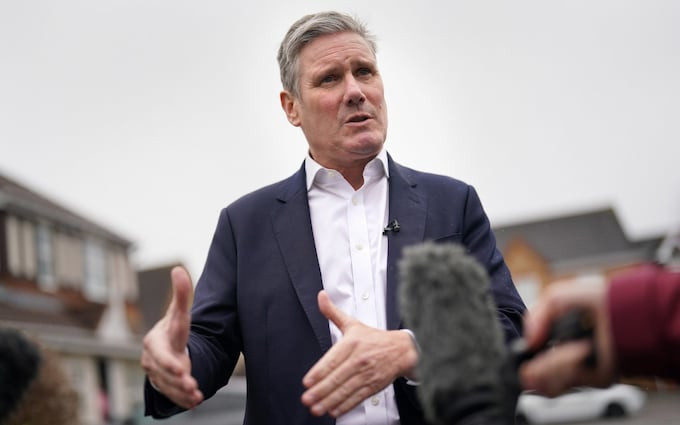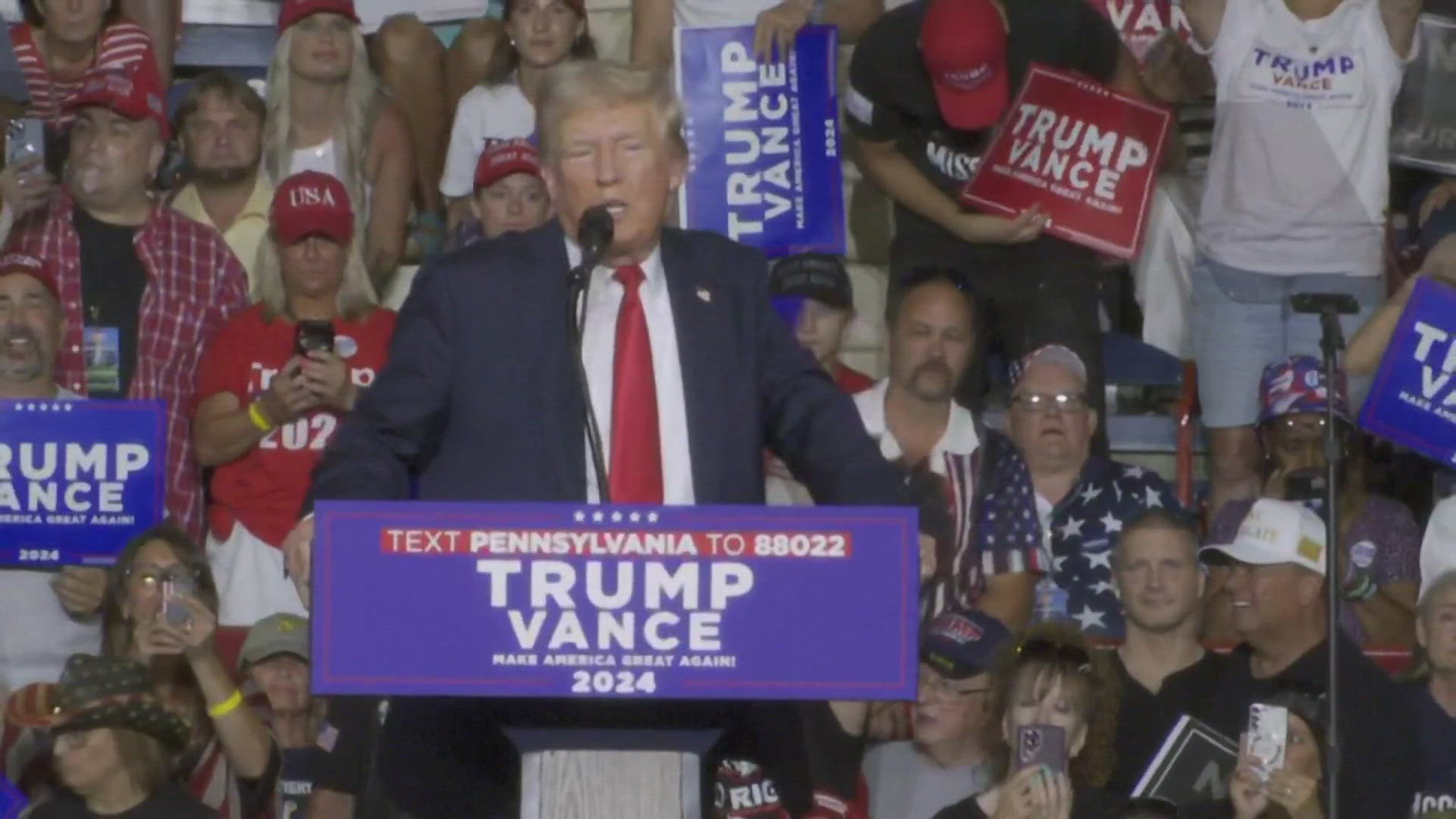With every difficult day Keir Starmer’s government has to navigate, the ease of its election victory only two months ago feels more and more extraordinary. Despite winning only a mediocre 33.7% of the vote, Labour gained 211 seats, the most by any party since 1945, and reduced the Tories to a rump barely half that number. These achievements will be mythologised and analysed by Labour members and strategists for decades to come.
Probably the most startling success of all was in the “red wall”. According to the research firm Focaldata, whose analyst James Kanagasooriam first identified this supposedly pivotal electoral zone in 2019, Labour won 37 of its 38 seats. The party had lost a majority of these former strongholds to the Tories during the 2010s, a loss widely seen at the time as hugely damaging and possibly permanent, but on 4 July 2024 that trend was spectacularly reversed. Starmer’s decision to shape his leadership largely around winning back patriotic, often socially conservative red-wall voters who want tight controls on state spending and immigration – an approach you could call red-wall Labourism – seemed to have been completely vindicated.
Yet two months on, can we be quite so sure? With more election data now available, and the new government’s strengths and weaknesses becoming apparent, the true nature of Labour’s red-wall triumph, and its ambiguous consequences for Starmer’s premiership, can begin to be discerned.
The Fragility of the Red Wall Victory
The first striking detail is how few extra red-wall voters Labour actually attracted at the 2024 election. According to Focaldata, the party’s vote share there only increased from 38% to 41%. Far more voters switched from the Conservatives to Reform, and this split on the right was mainly responsible for Labour capturing so many seats. Encouraging and exploiting such a split was part of Labour’s strategy: a forthcoming book on the election by Tim Ross and Rachel Wearmouth says the party deliberately did not campaign much against Reform. But with Reform now second behind Labour in 89 seats, in the red wall and beyond, and Reform’s favourite issue, immigration, often dominating politics since the election, usually to the government’s discomfort, the wisdom of Labour’s decision not to take on the party during the election is increasingly open to question.
So is how much Labour’s red-wall gains really contributed to its election win. According to Focaldata, fewer than a seventh of the seats the party captured were in the red wall. This suggests Labour could have won comfortably without them.
The Cost of Red-Wall Labourism
Starmer and his strategists say their red-wall campaign had a value beyond that battleground. Labour’s centrist or even rightwing red-wall messaging, its reverence towards “hero voters” who switched back from the Conservatives to Labour – these former supporters of catastrophic Tory governments could be described in less complimentary terms – was a necessary and successful way of signalling to voters across the country, Labour argues, that it was “a changed party”, as Starmer constantly describes it.
Yet that change has had costs. Labour’s election landslide had a hollow quality, with so much support seeping away to the Greens, Lib Dems and leftwing independents that its vote share was the lowest of any winning party for a century. Since the election, much of what the government has said and done about state benefits, public spending and immigration has continued to alienate leftwing and liberal voters.
This approach may not be electorally fatal, if the Tories remain too inward-looking and extreme for most voters and the split on the right continues. But it is already strengthening the right in a deeper sense, by echoing and legitimising some of its preoccupations. Starmer’s praise this week for the “remarkable progress” of the far-right Italian premier Giorgia Meloni’s authoritarian approach to refugees means that the next time Nigel Farage says something vile about immigrants, it will sound more respectable to mainstream voters.
The downbeat mindset of red-wall Labourism also risks boxing the government in. In the political analyst Deborah Mattinson’s book Beyond the Red Wall, published shortly before Starmer hired her as his head of strategy (a post she held from 2021 until the election), red-wall voters are presented as sceptical about multiculturalism and enthusiastic about politicians who are “tough on crime”. In his response to this summer’s race riots, Starmer almost exclusively emphasised law and order, rather than also taking the opportunity to stand up for this country’s ethnic and religious diversity and to call out multiculturalism’s over-pessimistic, often prejudiced critics.
The Risk of Conservative-Style Governance
The priorities of British governments are often distorted by excessive attention to swing voters. One of the reasons Tony Blair’s administration did not sufficiently challenge the deregulated Thatcherite economy it inherited, with ultimately disastrous consequences in the financial crisis, was that he did not want to alienate the new working-class entrepreneurs and property owners who had been among Thatcherism’s beneficiaries, who had acquired a rosy view of the free market as a result and who often lived in marginal seats. Likewise, Starmer’s government risks being too conservative because conservative voters loom too large in its calculations, blotting out the concerns and electoral potential of other Britons.
There are areas of government activity where the cautious approach of red-wall Labourism does not seem to apply, such as workers’ rights, renters’ rights and climate policy. Because red-wall Labourism, like the Labour right in general, is quite negative, surer of what it is against – the left, identity politics, London’s dominance – than what it’s for, it has not been able to supply enough policies to fill the government’s agenda. And as a fairly inexperienced politician who considers himself a pragmatist, Starmer sees having ministers with a range of outlooks as necessary, at least for now.
But the pressure will always be there from voter-obsessed advisers such as Morgan McSweeney to make the policies of relative radicals such as the energy minister, Ed Miliband, more palatable to former Tories in the red wall and elsewhere. If the government prioritises this minority of voters too much, and causes Labour’s overall support to narrow further, the next election will be tight, or worse. And then the retaking of the red wall, like Labour’s huge 2024 landslide, will be remembered by the party with ambivalence as well as fondness: as a tactical triumph, but a one-off.
A Fragile Mandate, A Challenging Future
Keir Starmer won the election because of a ruthless focus on winning over people who voted Conservative in 2019, but the party has been left with a “fragile coalition” of supporters who will abandon it if it fails to deal with the cost of living crisis and the NHS, a thinktank has said.
In a report by Labour Together, an influential Starmerite thinktank, researchers concluded voters had “cautiously hired” the prime minister “on a trial basis”, and he was “liable to prompt dismissal” if his government deviated even slightly from focusing on voters’ priorities.
The thinktank reported their findings to key No 10 figures, including Pat McFadden and Morgan McSweeney, in a Cabinet Office meeting last week.
The researchers, who are regarded as the government’s “critical friend”, said they were honest and direct about the challenges they believed lay ahead for Starmer’s top team. Officials were told that if the government did not deliver for voters, who have become more transactional than ever, they could easily face the same fate the Conservatives did after the 2019 election.
The report is based on a survey of 10,000 people across the country in polling and small focus groups, asking them why they voted the way they did. Labour Together had decided to launch this assessment of Labour’s performance once the general election was called in May, regardless of the result at the ballot box.
“Middle Britain” voters decided the outcome of the 2024 general election, the analysts said. They summarised this group of voters as being in the ideological centre of the country, slightly to the left on economic issues and more “authoritarian” on cultural issues.
The report notes it was Middle Britain’s “desire for change that mattered most” in the election, with Alex, a constituent from Leigh and Atherton, in north-west England, telling a focus group: “I’ve always voted Conservative, but it got to the point where I was thinking there’s got to be something better than this.”
However, Labour Together notes the party’s focus on demonstrating to people in “Middle Britain” that it shared their values was not without its cost, with Labour losing seats in Bristol West and Islington North to its left; Thangam Debbonaire and Praful Nargund lost to the Green party’s co-leader Carla Denyer and Jeremy Corbyn respectively. Jonathan Ashworth, the chief executive of the thinktank, also lost his Leicester South seat to the independent MP Shockat Adam.
While the research does not include analysis of independent seats, which is expected to come at a later date, it does note that many traditional Labour voters in Muslim communities backed independent candidates because of Labour’s position on the war in Gaza. It highlights a strong correlation between a decline in Labour’s vote share and the proportion of Muslims in a constituency.
“The depth of feeling about the situation in some, particularly Muslim, communities was profound,” the report states. “Its impact on voting intention was understated ahead of the election, in part because high-quality polling of ethnic minorities is rare.”
The issue cost Labour four seats, which went to independents. In the 17 seats where independent candidates finished second, Labour holds a lower average majority than it does where the Conservatives finished second.
However, the thinktank argues Labour’s biggest threat comes from the right, with the Tories being Labour’s biggest opponent, followed by Reform. Labour holds only an average majority of 14% over the Tories across all seats where they finished second. With Reform, Labour’s majorities average about 25%.
Morgan Wild, the chief policy adviser at Labour Together and co-author of the report, said: “Middle Britain needed to see that Labour had changed since 2019. It had. The 2019 Conservative voters it attracted were in the centre ground of British politics – without them, Labour simply could not have secured this decisive victory.
“Elections are won in the centre ground – a basic electoral truth Labour has a habit of forgetting. It mustn’t do so again: instead, the government must stay relentlessly focused on voters’ top priorities.”
A government figure said: “The findings reinforce that if we take our eyes off why voters elected us, we won’t be here in five years.”


















